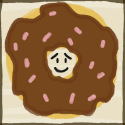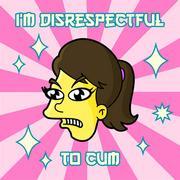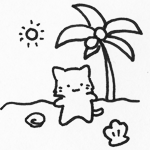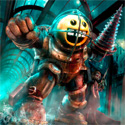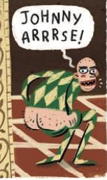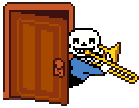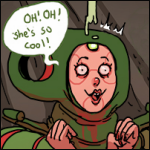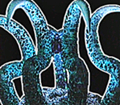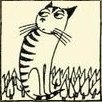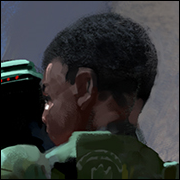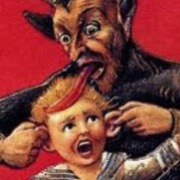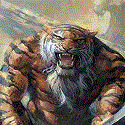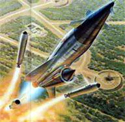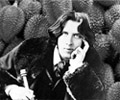|
a foolish pianist posted:It helps quite a lot to imagine that Kvothe is a sad old drunk bullshitting in the tavern in exchange for free beers. Like, he’s going to finish his story about being magical sex king then puke on somebody’s shoe and go sleep in the bushes outside. I bet he’s loving Bast. I have no evidence but I’m 100% sure.
|
|
|
|

|
| # ? May 20, 2024 09:46 |
|
There's Dreadnought, I mostly liked that one.
|
|
|
|
|
Harold Fjord posted:BotL was ultimately banned but he had some real good posts about Rothfuss'writing. I'm gonna go find one. BravestOfTheLamps posted:LET’S READ THE KINGKILLER CHRONICLE CRITICALLY BravestOfTheLamps posted:LET’S READ THE KINGKILLER CHRONICLE CRITICALLY BravestOfTheLamps posted:LET’S READ THE KINGKILLER CHRONICLE CRITICALLY
|
|
|
|
Once you hear Kvothe as Zap Branigan you can't hear him any other way.
|
|
|
|
MartingaleJack posted:Her assertion that she would sell less copies if her protags were trans...I don't think it's a bigoted statement. She specifically says she's in this for the money, so she's prioritizing income over everything else, and maybe research into her fanbase led her to that conclusion. There are other authors I know who specifically switched to writing about trans and lgbtq stuff because they thought there was a gap in the market they could break into, but as an established author it makes less sense financially for her to take risks. It's not like she said no one should write trans protag novels because they're inherently disgusting or something. Honestly, I think as an established author, she'd be in a better position to take a few risks because she's an established author. That said, as someone who's written a few things (mostly fan-fiction) I wouldn't write a transgender protagonist or major character because I don't think I could do them justice. I think my version of a trans character would come off as one or more of trite, cheap, stereotyped and just plain unauthentic. It would be very little signal, mostly noise and probably insulting noise at that. Meanwhile, as a straight, white CiS-gender male, I'm about to drop a few bucks re-acquiring Lila Bowen's Shadow series whose protagonist shares very, very few of my identifying traits.
|
|
|
Kalman posted:Between Two Fires ain’t that far off. (And is actually good.) Between Two Fires is both a pro read and basically that Darklands RPG from the early 90s, novelised. Saying that, I realised I now want to read a Mork Borg novelisation. In the mood for some grime.
|
|
|
|
|
Wait, Between Two Fires is Darklands? poo poo, now I have to play it.
|
|
|
|
Someone once posted that when reading the Name of the Wind, you can practically see the account balance in the upper right hand corner of the screen. Which is what I liked about it. I like books where things get built up from smaller things. That kind of rpg progression tickles the right nerves in my brain, apparently. If there are other sf/f books that do that, let me know, please.
|
|
|
|
Beachcomber posted:Someone once posted that when reading the Name of the Wind, you can practically see the account balance in the upper right hand corner of the screen. The SF/F Kindle Unlimited thread is a good resource for this kind of thing because progression fantasy is a gigantic genre in self publishing. The ultimate shortlist in my brain though Cradle by Will Wight (westernized version of Chinese progression fantasy known as Cultivation) Dungeon Crawler Carl by Matt Dinniman (litRPG with literal stat screens, but funny and pageturning and just, you know, good)
|
|
|
|
FPyat posted:I've been seeing some speculation as to why there are so few superhero novels, and the answer some of the users settled on was that superhero stories are focused on action and will not appeal to a novel-reading audience who want character development and plot. Consider me skeptical. it's because publishers who want to appeal to existing fans just make comics op. but yeah, the idea of people with what is basically magic doing weird kayfabe and smashing each other and the city up is cool, but there's not much to read in this department. memoirs of a d-list supervillain and I Am Invincible is pretty much it as far as ones I'd recommend. i am invincible is really melancholy and regretful, I liked it a lot. d-list supervillain is standard genre fiction, but it's not bad, which makes it like a 10 in the KU tier.
|
|
|
|
AARD VARKMAN posted:The SF/F Kindle Unlimited thread is a good resource for this kind of thing because progression fantasy is a gigantic genre in self publishing. The ultimate shortlist in my brain though
|
|
|
|
Keith r candido (spelling might be mangled on that) has a pretty great series called super cops or something like that. It's basically a csi/cop investigation for super criminal stuff. They are normal people though, not super heroes. That's my jam. CSI/Cop procedure novel based in sci fi or fantasy? Gimme.
|
|
|
|
Larry Parrish posted:it's because publishers who want to appeal to existing fans just make comics op. but yeah, the idea of people with what is basically magic doing weird kayfabe and smashing each other and the city up is cool, but there's not much to read in this department. memoirs of a d-list supervillain and I Am Invincible is pretty much it as far as ones I'd recommend. i am invincible is really melancholy and regretful, I liked it a lot. d-list supervillain is standard genre fiction, but it's not bad, which makes it like a 10 in the KU tier. I always recommend Tom De Haven's It's Superman!, so here's another recommendation for it. Finished a couple of very short novels recently. First, Doris Lessing's The Making of the Representative for Planet 8 from her "Canopus in Argos" series, about an alien civilization dying out as their once temperate planet experiences a climate shift and slowly freezes over. Grim and moody as you might expect; Lessing says she was inspired by Robert Falcon Scott's journals from his failed Antarctic expedition. And then there was Myke Cole's The Armored Saint: Joan of Arc-esque lesbian protagonist in steampunk power armor leads rebellion against repressive theocracy. Not particularly deep, and honestly it felt more like a setup for the real story, but it was a fun read and left me wanting to continue with the series, so job done.
|
|
|
|
Everyone posted:Honestly, I think as an established author, she'd be in a better position to take a few risks because she's an established author. That said, as someone who's written a few things (mostly fan-fiction) I wouldn't write a transgender protagonist or major character because I don't think I could do them justice. I think my version of a trans character would come off as one or more of trite, cheap, stereotyped and just plain unauthentic. It would be very little signal, mostly noise and probably insulting noise at that. i assure you this sort of concern has never stopped her before
|
|
|
|
Copernic posted:BINGO! I know I'm asking for it but why is Frank Herbert on that BINGO card? I know about the issues with every other author there, but as far as I know Herbert seems like a guy who just threw every wild psycho-sexual idea or hallucinogen-inspired thought he had onto the page, but ultimately comes off as a wild pervert with his heart in the right place. Am I wrong? Hopefully he didn't beat his wife or something. Edit: Whoops, didn't see that Asamov was already on the list. Blastedhellscape fucked around with this message at 04:10 on May 24, 2022 |
|
|
|
Megasabin posted:There was one narrative beat in this trilogy I did not love. Kennith raping Aletha. It felt really out of left field for his character, happened way too late in the plot of the book, and became this overpowering force that trod on a lot more interesting conflicts that were set up in the previous two books. For example. the trilogy somehow managed to sidestep one of the main conflicts it was setting up across all 3 novels-- Althea and Wintrow vying for the Vivica. Althea's entire character (understandably) changes after the rape and they are simply able to solve 3 book's worth of tension with her hand waving away her claim to the ship in a throw away sentence. It could have lead to some interesting psychological and interpersonal distress with Wintrow and Etta, which they hinted at briefly, but since it all happened in the 2nd half of the final book it never got time to breathe or develop. I felt like it worked from a story and character perspective, and Kennit's shittiness is wrapped up in his repeating the same abuse he suffered, but you're right about it derailing one of the central conflicts of the story.
|
|
|
|
Blastedhellscape posted:I know I'm asking for it but why is Frank Herbert on that BINGO card? I know about the issues with every other author there, but as far as I know Herbert seems like a guy who just threw every wild psycho-sexual idea or hallucinogen-inspired thought he had onto the page, but ultimately comes off as a wild pervert with his heart in the right place. IIRC Herbert was very lovely to his gay son and lovely about gay people in general (including in his fiction). It's one of the milder faults compared to some of the writers on that bingo card as far as I'm aware, tho.
|
|
|
|
Cicero posted:Far from certain here, but maybe it's that superheroes are dominant in the comic space? So people who want to tell superhero stories tend to go there more, because the audience is already there. They aren't really, unless you are talking about a very limited slice of the American comic space. And I'd say the fact that it's actually not as big as people think it is is probably more of a reason why it doesn't find enough fans in other media(except movies and tv) than anything inherent in the medium.
|
|
|
|
Stupid_Sexy_Flander posted:CSI/Cop procedure novel based in sci fi or fantasy? Gimme. So newts didn't post it in this thread but she has TWO cop procedural urban fantasy novels out. Both are in KU and the second one just came out not long ago: newts posted:The Night City is really a mystery/police procedural, but it’s set in an AU world with two species of humans, one of which is psychic. newts posted:And now the sequel is up The Nocturnum Files Disclosure: I am in newts' writing group and I do not normally read cop procedurals, that said I really did enjoy both books.
|
|
|
|
Stupid_Sexy_Flander posted:Keith r candido (spelling might be mangled on that) has a pretty great series called super cops or something like that. It's basically a csi/cop investigation for super criminal stuff. They are normal people though, not super heroes. That's my jam. CSI/Cop procedure novel based in sci fi or fantasy? Gimme. Charlie Stross' Halting State and Rule 34 are calling you by name. Selachian posted:Finished a couple of very short novels recently. First, Doris Lessing's The Making of the Representative for Planet 8 from her "Canopus in Argos" series, about an alien civilization dying out as their once temperate planet experiences a climate shift and slowly freezes over. Grim and moody as you might expect; Lessing says she was inspired by Robert Falcon Scott's journals from his failed Antarctic expedition. I've got the omnibus of Canopus in Argos. It's loving huge. It's also one of the most poignant examinations of the human (and cat) conditions you'll ever find. These aren't the books that won her the Nobel for literature, but they show why she earned it. Highly, highly recommended.
|
|
|
|
FPyat posted:I've been seeing some speculation as to why there are so few superhero novels, and the answer some of the users settled on was that superhero stories are focused on action and will not appeal to a novel-reading audience who want character development and plot. Consider me skeptical. Not a lot of costumed superhero novels maybe, but there's been plenty of sf protagonists with superpowers. They just don't usually wear skintights and capes because what's the point when nobody's drawing your perfect physique. I mean, come on, try telling me Slan isn't an X-Men precursor for starters. The Green Lantern Corps was an explicit knockoff of the Lensmen.
|
|
|
FPyat posted:I've been seeing some speculation as to why there are so few superhero novels, and the answer some of the users settled on was that superhero stories are focused on action and will not appeal to a novel-reading audience who want character development and plot. Consider me skeptical. Kinda-sorta. I feel like there's something to be said for that it's easier to establish a superhero in a visual medium -- here's their powers, their look, and so on. And I think there is something to be said for the expectations of readers and audience. But I think the actual reason is more that superhero stories are very narrow, and the more you develop them outside of their narrow genre confines, the more you just end up with a story that could be told better as a sci-fi thriller or something, where the superhero parts of it are weighing it down in some way. So you might as well just write that. Like, what makes a superhero story? Where is the line drawn between, say, Spiderman and something like Heroes? Is the Tom Cruise adaptation of Edge of Tomorrow a superhero story? I've seen arguments made by people that Snyder's Man of Steel isn't a superhero film but a sci-fi film because the focus is more on Clark Kent's psychology and choices and angst than Being Superman. When I think superhero story, I think of something with rather indistinct 'kitchen sink' worldbuilding, costumed heroes and villains that somehow don't really exist 'within' society, a focus on heroic individuals that minimises anyone who isn't and/or structural issues, and a lack of really pulling at the threads of the whole tapestry. Like, Tony Stark invents clean, cheap power and then just kind of sits on it and everyone lets him -- but you better not offer up any commentary on that! Heroes and villains just kind of run around doing their thing and everyone just sort of lets them. There's also the business side of things. While I've been querying my own "post-superhero" novel, I've been surprised at the number of SF/F agents who noted "no superheroes, please" or something along those lines in their submission notes. I feel like there simply hasn't been a smash hit superhero novel but I'm also not entirely sure what one would even look like. Personally, I've not enjoyed any I've read to the extent that I'd argue Wildbow's Worm is perhaps the best in class. Maybe it's because so much superhero stuff feels like it's only in conversation with the genre and itself, I don't know. Maybe it's because there's a distinct impression that Marvel and DC have a stranglehold on what a superhero story is (and, along those lines, I've talked to people in the industry who are worried about even publishing a superhero novel because of the big two and possible litigation.) And even Worm, even though what I've just said about it, it has this real thread of "This isn't how it'd work, dad" running through it where worldbuilding choices only really exist as commentary on the author's take on the genre. Why would the authorities have a prison like Arkham where it feels like everyone's always escaping from? No, they'd have a super-prison built inside a vacuum within a mountain overseen by a benevolent AI. Does one supervillain summon an army of ghost clones? No, he summons fragments of his ego laced with psychic energy -- there's no such thing as ghosts or magic! Why do we even have this game of costumed cops and robbers? Well, there's an eldritch conspiracy to have the world play costumed cops and robbers. Is any of this actually going to matter, in the sense that it concerns the real meat of the story, the protagonist and her personality and fall? No, not really -- so, ultimately, you've got this story about a young woman's descent into evil broken up by gruelling infodumps. A new character shows up? Here's a paragraph on what their name is, what they look like, and how their powers work. I don't know. It's odd. I consider my little novel more of a sci-fi thriller set in a near future where superheroes are a defined construct because, well, how else is the world going to try and organize people with crazy superpowers? They don't just exist because it's a superhero work which is the feeling I get from just about every other bit of superhero fiction I've read. I think It's Superman! even copped negative reviews from people saying that, like, he didn't punch Lex Luthor enough and so therefore it wasn't a superhero novel. So, in conclusion:  . .
Milkfred E. Moore fucked around with this message at 11:06 on May 24, 2022 |
|
|
|
|
it's kind of just window dressing and barely there but it was cool in worm when the cops and robbers poo poo had a vaguely ideological bent to it and it was like the world was so awful that people literally gained magic to destroy it one way or another. like even to the people without powers the only truly worse option was the status quo. but it kind of never did anything with that actually cool idea and instead decided to do basically what you said for 14,000 pages or whatever.
|
|
|
|
Sax Solo posted:Below the fold: It’s astonishing to me that a fantasy author doesn’t have the imagination to conceive of a fantasy society that has a place for transition-related magic. You’re going to ask me to believe that a dude can fall in love at first sight with a magic horse* or a sorcerer father can use his daughter as a magical battery, but trans people just can’t do anything with magic to improve their lives? *I think this was a Lackey book
|
|
|
|
Non Krampus Mentis posted:It’s astonishing to me that a fantasy author doesn’t have the imagination to conceive of a fantasy society that has a place for transition-related magic. You’re going to ask me to believe that a dude can fall in love at first sight with a magic horse* or a sorcerer father can use his daughter as a magical battery, but trans people just can’t do anything with magic to improve their lives? The big bad in her Mage Winds series is literally a disembodied consciousness that takes over bodies. It's really just a lovely old TERF opinion
|
|
|
|
Non Krampus Mentis posted:It’s astonishing to me that a fantasy author doesn’t have the imagination to conceive of a fantasy society that has a place for transition-related magic. You’re going to ask me to believe that a dude can fall in love at first sight with a magic horse* or a sorcerer father can use his daughter as a magical battery, but trans people just can’t do anything with magic to improve their lives? God knows how many books out there where people can change into wolves and hawks and dragons and naked mole rats and bags of prawn cocktail crisps and whatever, but into themselves but a different gender? Inconceivable!
|
|
|
|
Runcible Cat posted:God knows how many books out there where people can change into wolves and hawks and dragons and naked mole rats and bags of prawn cocktail crisps and whatever, but into themselves but a different gender? Inconceivable! Not to mention how many fantasy books have female protagonists dress in men’s clothing and pass as male to get by. Sure a lot of those women were not expressly meant to be trans male, but a more general feminist trope, but its based on historical precident where you can’t possibly prove that none of them were trans male. And if you write a character who passes as a man and wants to stay that way, you’ve basically written a trans male character. E. Also I read a book as a pre-teen (can’t remember the title) about a cat who got magically turned into a man and decided he wanted to stay that way, and reading transness into these kinda stories is already a thing. So stripping away the metaphor and writing about a girl who grows up in men’s clothing and searches for magic to actually become a man isn’t a stretch at all. These stories already exist in different clothing, yet here was Mercedes Lackey freaking out at the idea of writing a story where a boy seeks magic to become a woman instead Stuporstar fucked around with this message at 15:56 on May 24, 2022 |
|
|
|
More fantasy settings should look like Varley's Nine Worlds gender-wise, sufficiently high magic implies affordable, perfect, and reverseable gender changing.
|
|
|
|
score another point for The Culture there
|
|
|
|
The Culture is basically the perfect trans friendly universe. You can be anything. Even an orbital weapons platform.
|
|
|
|
AARD VARKMAN posted:score another point for The Culture there They lose it again for believing that strictly cis people are weird, though.
|
|
|
|
Stuporstar posted:Not to mention how many fantasy books have female protagonists dress in men’s clothing and pass as male to get by. Sure a lot of those women were not expressly meant to be trans male, but a more general feminist trope, but its based on historical precident where you can’t possibly prove that none of them were trans male. And if you write a character who passes as a man and wants to stay that way, you’ve basically written a trans male character. Well, yeah. There seem to be a lot more girls disguised as boys than boys disguised as girls, but you do run across the latter occasionally - Philip Reeve's Here Lies Arthur's Peredur, for instance. And Jane Gaskell's 60s-pulp-A-F Atlan Saga has the heroine escape from a farm in borrowed boys clothes and later run into one of the farm boys who's repaired the girl clothes she left, run away to the city wearing them and become the mistress of one of the military officers there... Hell, Ozma of Oz originally showed up as a boy, and there's no telling whether she was actually physically male as Tip or whether her transformation was just a bath and a pretty dress.
|
|
|
|
Everyone posted:CiS-gender this is an exciting new spelling!
|
|
|
|
MartingaleJack posted:The Culture is basically the perfect trans friendly universe. You can be anything. Even an orbital weapons platform.
|
|
|
|
I have a personal theory that Rothfuss hasn't finished his series because he's grown as a person and can't bring himself to execute his original vision anymore, and yet his rabid fans demand nothing less. On a related note, if you want more Kvothe, definitely pick up the Empire of Silence/Sun Eater series by Christopher Ruocchio. It starts out feeling like a pastiche of bestseller SF and has this awesome character arc where the gifted but perfectly tormented protagonist learns to reject his liberal mores and embrace fascism to become Time Jesus, the Inevitable (?) Emperor. Most critical reviews I've seen seem to stop with the plagiarism in book one and never get to the mask-off communist caricatures who use the Space Communist Manifesto to mind control their population, who they secretly sell as food to the Space Orcs that only want to kill God and Eat Babies (in Space). It has its qualities if you want to read more Rothfuss (in Space), but it's also a prime candidate for reading the wiki plot summary and smugly rejecting for thoughtcrimes and plagiarism and being the self-insert power fantasy of a 20-something catholic kid, if that's your thing.
|
|
|
|
AARD VARKMAN posted:The SF/F Kindle Unlimited thread is a good resource for this kind of thing because progression fantasy is a gigantic genre in self publishing. The ultimate shortlist in my brain though Two other decent progression series that come to mind are the Mage Errant series by John Bierce and the Arcane Ascension series by Andrew Rowe.
|
|
|
|
FPyat posted:I've been seeing some speculation as to why there are so few superhero novels, and the answer some of the users settled on was that superhero stories are focused on action and will not appeal to a novel-reading audience who want character development and plot. Consider me skeptical. Yeah, I've read no shortage of SF/F pulp that is entirely focused on cool action setpieces with little to no character development and just enough plot to string the action scenes together. There's definitely a market for superhero prose stories in the same vein, and they do exist (e.g. the Ex-Heroes series), but it seems to be a very small niche. And conversely, there are superhero books (and comics!) that put a heavy emphasis on plot and character. Runcible Cat posted:Not a lot of costumed superhero novels maybe, but there's been plenty of sf protagonists with superpowers. They just don't usually wear skintights and capes because what's the point when nobody's drawing your perfect physique. This is true, but I think what makes it a "superhero" story isn't the superpowers but the whole social context around them. Thranguy posted:More fantasy settings should look like Varley's Nine Worlds gender-wise, sufficiently high magic implies affordable, perfect, and reverseable gender changing.  Two recent series I read in that vein: - in the Tensorate, children are not gendered until they intentionally choose a gender for themselves. Wizards provide the magical equivalent of puberty blockers, HRT, and/or surgery as needed. - in Inthya, divinely powered gendershifting magic is temporary, but cheap and widely available; there's a cultural expectation that everyone will try it out at least once. Sometimes people try it out and it never wears off because the new shape fits them better than the one they were born in. The latter series is also the one where one of the books had me going "hmm, the poo poo this werewolf is going through with her malfunctioning transformations seems like it could be an allegory for The Trans Experience" and then like a chapter later the author went "subtext is for cowards, watch this: the werewolf is trans". Everyone posted:CiS-gender What do people think "cis" stands for? I'm going crazy here trying to figure it out.
|
|
|
|
I've been scouring my recent reads (about 220 books over the past 2.5 years or so, mostly SFF and Horror), and I'm sort of surprised by how few fantasy books explicitly deal with magic-based transitioning, or even that have explicitly trans characters. From the stuff I've read at least, it's way more common to see trans characters in SF by a WIDE margin. The ones that have both explicitly mentioned magic transitioning: The Four Profound Weaves by R.B. Lemberg (at least one culture that's trans-affirming has a magic weaving technique/spell that can trans your gender) The Tensorate Series by Neon Yang (which ToxicFrog mentioned right before I was about to post, yeah, is not super specific as to the method, but it's established that at least for people who can afford it, magical puberty blockers are common and so is magic transition once you've decided to declare your gender formally) And then Phoenix Extravagant by Yoon Ha Lee has a culture with an established third gender (mostly demarcated by specific clothing/hairstyle) but that is much more of a social thing than something medical/magical. I almost included Broken Earth Trilogy by Jemisin, but then remembered that the methods Tonkee uses to transition are pretty explicitly scientific from my recollection at least (which makes sense since most of the magic limited to earth/seismic stuff). There's also She Who Became the Sun by Shelley Parker-Chan which has a pretty trans main character, but at least the first book it's more of a 'I'm just pretending to be a dude so I can lead this army... but actually, maybe I am a dude?' trajectory so far and the magic/supernatural angle is kind of ambiguous overall. I think I need to add the Inthya series to my TBR if it's got trans werewolves though, that sounds rad.
|
|
|
|
moonmazed posted:this is an exciting new spelling!
|
|
|
|

|
| # ? May 20, 2024 09:46 |
|
David Brin's Kiln People mentions in passing that people use the book's central "stick your brain into a short-lived synthetic bodies then meld their experiences back into yours later" technology to change up their gender (and general body identity).
|
|
|



